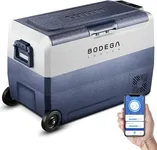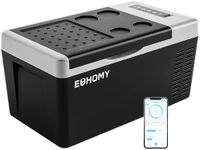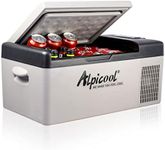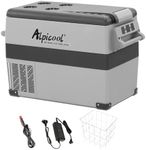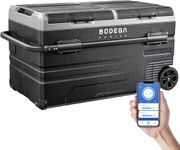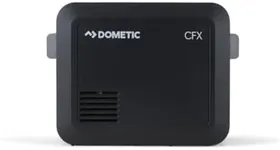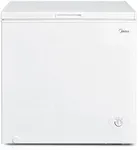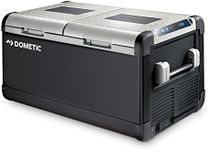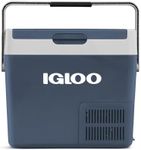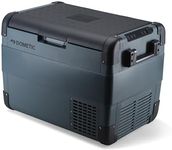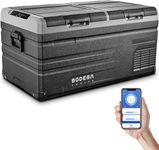Buying Guide for the Best Electric Cooler For Truckers
Choosing the right electric cooler for truckers is essential to ensure that your food and beverages stay fresh and cool during long hauls. When selecting an electric cooler, it's important to consider various specifications that will impact its performance, convenience, and suitability for your needs. Understanding these key specs will help you make an informed decision and find the best fit for your lifestyle on the road.CapacityCapacity refers to the amount of storage space available inside the cooler, usually measured in liters or quarts. This spec is important because it determines how much food and drink you can store. If you often carry a lot of items, a larger capacity cooler (50-60 quarts) would be ideal. For shorter trips or fewer items, a smaller capacity (20-40 quarts) might suffice. Consider your typical storage needs and choose a cooler that can comfortably accommodate them.
Power SourceThe power source indicates how the cooler is powered, typically through a 12V DC car outlet, 24V truck outlet, or an AC adapter for standard wall outlets. This spec is crucial because it affects where and how you can use the cooler. For truckers, a 12V or 24V option is most convenient as it can be plugged directly into the vehicle's power outlet. Ensure the cooler you choose is compatible with your truck's power system to avoid any inconvenience.
Cooling PerformanceCooling performance measures how effectively the cooler can maintain low temperatures, often indicated by the temperature range it can achieve. This is important to keep your perishables safe and fresh. Coolers with a wider temperature range (down to -4°F) offer more versatility, allowing you to use them as freezers if needed. For general cooling needs, a range that goes down to 32°F should be sufficient. Consider what types of items you'll be storing and choose a cooler with the appropriate cooling capabilities.
Energy EfficiencyEnergy efficiency refers to how much power the cooler consumes while operating. This spec is important because it impacts your vehicle's battery life and overall energy consumption. More energy-efficient coolers will draw less power, which is beneficial for long trips. Look for coolers with energy-saving features like eco modes or low power consumption ratings. If you spend a lot of time on the road, an energy-efficient model will help you save on fuel and reduce the strain on your vehicle's battery.
PortabilityPortability encompasses the ease with which you can move and transport the cooler, including its weight, handles, and wheels. This spec is important for convenience, especially if you need to frequently move the cooler in and out of your truck. Lighter coolers with sturdy handles or wheels are easier to transport. If you often need to carry the cooler over long distances or rough terrain, prioritize models with good portability features. Consider your typical usage scenarios and choose a cooler that you can easily manage.
DurabilityDurability refers to the cooler's ability to withstand rough handling and harsh conditions. This spec is important for ensuring the cooler lasts a long time and can handle the rigors of life on the road. Look for coolers made from high-quality materials like heavy-duty plastic or metal, and those with reinforced corners and sturdy construction. If you frequently encounter bumpy roads or tough environments, a more durable cooler will be a better investment. Assess your typical travel conditions and choose a cooler that can endure them.
Noise LevelNoise level indicates how much sound the cooler makes while operating, usually measured in decibels (dB). This spec is important for comfort, especially if you sleep in your truck. Quieter coolers (below 40 dB) are less likely to disturb your rest. If you are sensitive to noise or plan to keep the cooler running overnight, opt for a model with a lower noise level. Consider your tolerance for noise and choose a cooler that won't disrupt your peace.
